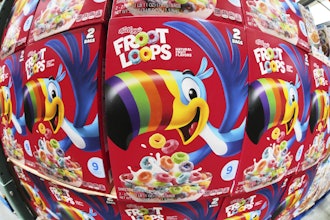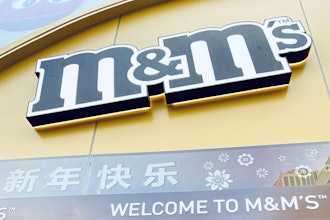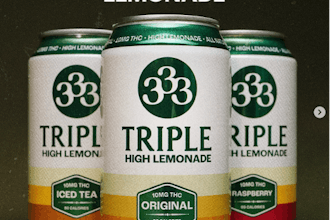WASHINGTON (GMO Inside) — July 16, 2013 – Chobani is the United States’ top Greek yogurt brand and it prides itself on adding no GMO ingredients to its yogurt. However, it is likely that the company is relying on milk from cows eating a diet full of genetically modified organisms (GMOs).
GMO Inside, a national, non-GMO coalition led by Green America, is calling on Chobani to cease marketing its products as “real” and “natural” until the company switches to verified non-GMO milk sources.
“Demand for non-GMO foods is growing every day, but for even the most careful consumer it can be very difficult to know which products are affected by GMOs,” said GMO Inside Campaign Director Elizabeth O’Connell, “Chobani has an opportunity to be a leader amongst meat and dairy companies by listening to its customers and ensuring its cows are given non-GMO food.”
GMO Inside is asking Chobani consumers to sign a petition to Chobani requesting the company use milk from cows that have not been fed GMOs. Consumers can also take action on Facebook by visiting www.facebook.com/GMOInside.
The company, which is known to be monitoring its Facebook page for discussion this topic, is extremely sensitive to consumer feedback about GMOs.
GMO Inside is insisting that Chobani can’t just pretend that its customers are insulated from the reality of GMOs. Cows living on industrial farms eat GMO feed two to three times a day, every day. This silage may consist of GMO corn, soy, alfalfa, cotton seed, and/or sugar beets, plus synthetic vitamins that are often times also derived from GMO crops. In fact, 98 percent of genetically modified soy and 49 percent of genetically modified corn goes to feeding livestock and poultry.
Animals, like humans, are deeply impacted by the quality of their diets. A recent study showed that pigs fed an entirely GMO diet suffered from severe stomach inflammation when compared to pigs given non-GMO feed. (See sourcing below.) Additionally, while the dairy industry has claimed that genetically modified particles are broken down in the digestive tracts of the animals that eat them, these GM particles have shown up in the organs and milk of animals fed GMOs, the same milk and meat that humans then eat.
Greek yogurt, popular today for its high protein content, is likely made with milk from cows fed GMOs, unless otherwise specified. It’s impossible for consumers to know which meat and dairy products are derived from GMO-fed livestock, unless the product has gone through the Non-GMO Project’s certification for non-GMO feed, recently approved by the USDA as a credible label. Even more than regular yogurt, Greek yogurt requires a large amount of GMO milk since it is strained more than regular yogurt. (It takes roughly four ounces of milk to make one ounce of Greek yogurt.)
ABOUT GMO INSIDE
GMO Inside is a coalition of businesses, organizations, and individuals that support a healthy, GMO-free food system. The GMO Inside steering committee, led by Green America, includes: Food Democracy Now!, GMO Free USA, Institute for Responsible Technology, Label GMOs, Nutiva, and Food Babe. http://gmoinside.org/
ABOUT GREEN AMERICA
Green America is the nation’s leading green economy organization. Founded in 1982, Green America (formerly Co-op America) provides the economic strategies, organizing power and practical tools for businesses, investors, and individuals to solve today’s social and environmental problems. www.GreenAmerica.org
Group Calls on Chobani to Switch to Non-GMO Milk Sources
GMO Inside is calling on Chobani to cease marketing its products as “real” and “natural” until the company switches to verified non-GMO milk sources. The group says Greek yogurt is likely made with milk from cows fed GMOs, unless otherwise specified.
Jul 18, 2013
Latest in Ingredients






















